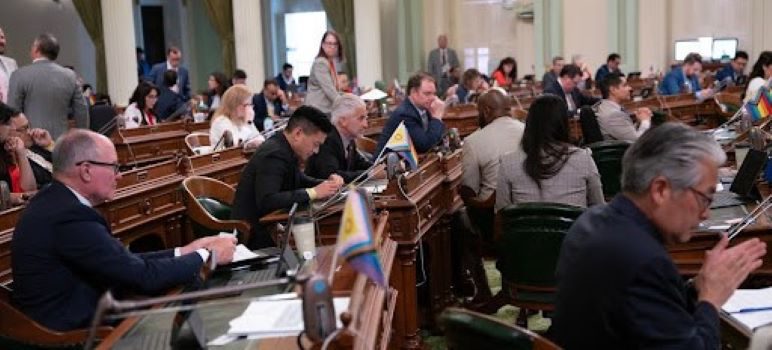Like many new political candidates at the time, Rebecca Bauer-Kahan first ran for the state Assembly in 2018 because she was troubled by the election of then-President Donald Trump and wanted California to fight back against his administration.
Six years later, that dynamic has flipped on its head. In the just-concluded regular legislative session, the San Ramon Democrat and her colleagues instead battled a surging rebellion from conservative California communities against the state’s liberal governance.
On issues including abortion access, election rules and LGBTQ rights, Democrats in Sacramento passed legislation this year to stifle emerging local policies that they argued undermine the state’s commitment to diversity, civil rights and other progressive values.
“In certain ways, we have the right to hold the line for our constituencies,” said Bauer-Kahan, who compared the relationship between the Legislature and local governments to a system of checks and balances. “And I think that’s what we’re doing right now — we’re checking them.”
Tensions over local control are nothing new in California politics, as anyone who has followed decades of debate about land use and housing development can attest. But the last few years have opened a new front of conflict around cultural grievances more typical of red states.
With Republican power waning in California — the party hasn’t elected a candidate to statewide office since 2006 and labors under a superminority in the Legislature — conservatives are increasingly using the relative autonomy of city councils, county boards of supervisors and school boards to protest liberal state policymaking and assert a competing vision for their communities.
“There’s just a lot of built-up frustration and that’s one valve that’s being used,” said Assemblymember Bill Essayli, a Corona Republican who is often an outspoken opponent of bills to shut down conservative defiance. “We’re in an era in politics where you need an adversary.”
Alexei Koseff is a reporter with CalMatters.

